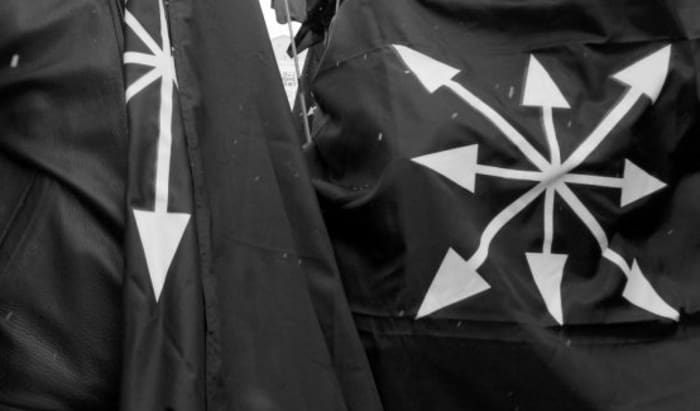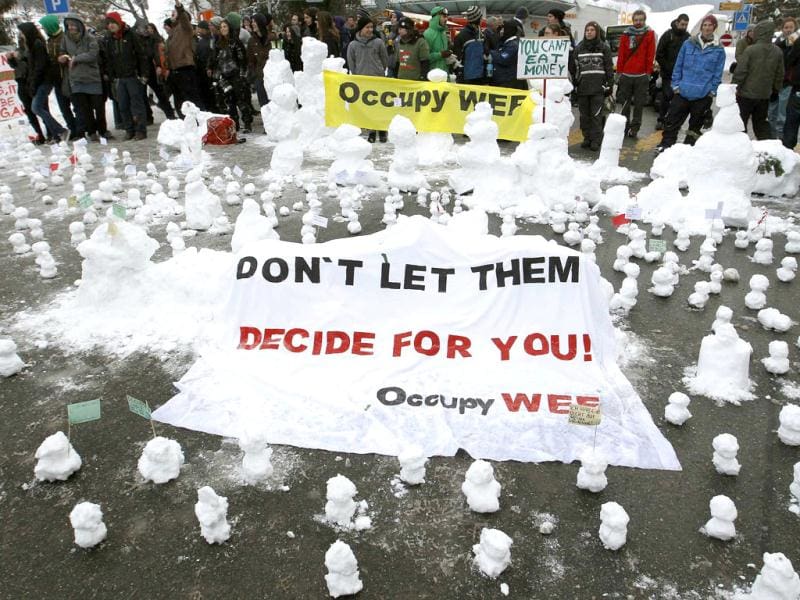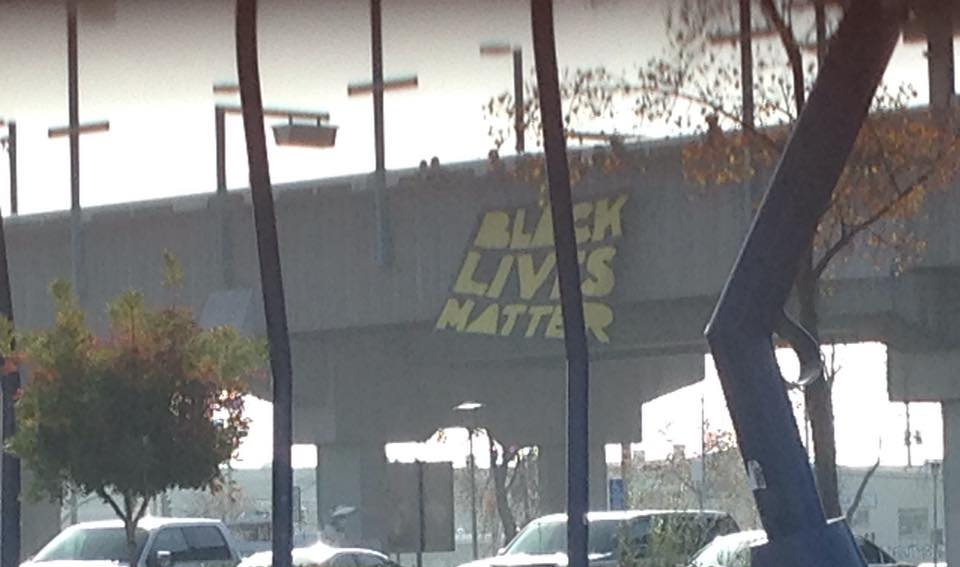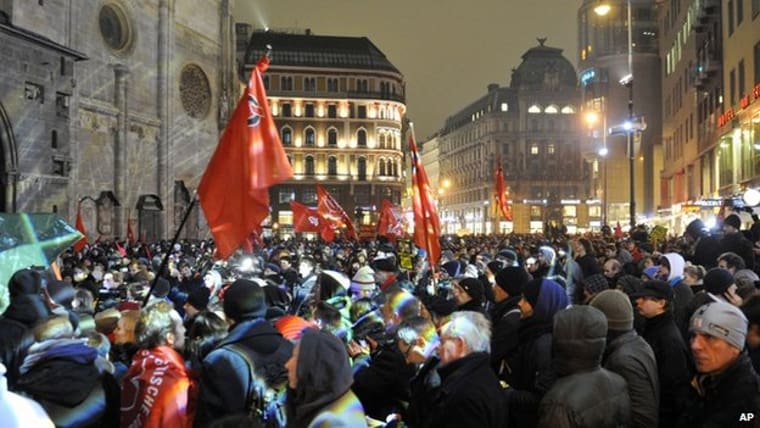Transcribed from the 6 October 2018 episode of This is Hell! Radio (Chicago) and printed with permission. Edited for space and readability. Listen to the whole interview:
When we say there was no correct answer for the left, we shouldn’t be naive about how this was constructed such that a left response was impossible on the terrain that was laid out.
Chuck Mertz: There’s a battle over what “European-ness” is, and that fight is having reverberations around the world as it ripples outward in a wave of global white nationalism. Here to get us caught up on the debate and what it means for everyone on the planet, not just Europe: live from London, writer, essayist, editor, poet, and broadcaster Eleanor Penny wrote the In These Times story “Steve Bannon’s European Dream: Europe used to serve as a utopian vision for the left and a punching bag for the right. Now it’s reversing.” Eleanor is a senior editor at Novara Media and the online editor of Red Pepper magazine. She hosts the New Statesman policy podcast The Sisterhood, and she hosts poetry podcast Bedtime Stories for the End of the World.
Welcome to This is Hell!, Eleanor.
Eleanor Penny: Hi there, Chuck, it’s really great to be on.
CM: You write, “Two years and a hundred political lifetimes ago, a UK prime minister offered a spurious referendum on EU membership to quell backbenchers and far-righters causing trouble in the ranks. It was a disastrous game of electoral Russian roulette.”
Considering the media narrative here in the United States around anything to do with Russia, I want to start right there. Was this more a political suicide than anything caused by outside influences like Russia? Part of the debate here in the United States around the triumph of the right in getting Donald Trump into the white house is that it’s illegitimate in some way. I’m curious about the legitimacy that people in the UK believe Brexit has. Is the rise of the far right illegitimate?
EP: There are a couple of things to unpack here. You’re right to point out this debate; it’s happening in the UK, just like in the US. Everyone—especially the liberal corporate media, who are still reeling in shock about how this could have happened without their seeing it—is taking their shock and mapping it onto some presumed political reality where it must have been some kind of foreign influence or interference and not our inability to actually talk to people. That’s inherent to corporate media, of course.
There are questions around the legitimacy of the referendum, but they aren’t about interference. They go much deeper than that. They’re about the inordinate amount of big money—not just foreign money, but money from regular UK domestic aristocrats and plutocrats—that was plowed into the Leave campaign to spread lies.
The Brexit debate has completely cannibalized the entire UK political terrain. It feels completely impossible to gain ground on any questions of economics, gender justice, racial justice, or anything else without confronting the big political question of what the hell happens in March 2019 when we careen off the cliff of Brexit. In that context, it’s really hard to remember that back in 1994, when the UK Independence Party was founded (as Will Davies, a writer and lecturer at Goldsmiths University, observed), only a handful of people cared about the question of European membership, and all of them were in the Tory cabinet.
This is the essential thing that we need to confront when we’re talking about the realities of Brexit: we have to think of it not just as a practical economic problem, like how leaving the customs union will affect our shipping industry, but also as a historical moment when a technocratic question about the particular configuration of Britain’s relationship to the rest of global capital has become a symbolic question about nationhood and British nativism.
Most people who voted Leave have no idea about the structure of the European Union. That is something that has been said time and time again. What hasn’t been said time and time again is that most people who voted Remain have no idea about the structure of the European Union either. The EU is a mess of fifteen different, maddeningly embrocated institutions and their offshoots, and the trade treaties that they’ve agreed upon. The debate was not about that, ninety percent of the time. It was a proxy debate on race.
CM: You write, “A deceptively simple choice—In or out?—fractured UK political culture into unlikely alliances: pro-Remain leftists, from reluctant to distinctly Europhile, found themselves allying with global conglomerates like Goldman Sachs. Older socialists and alter-globalists skeptical of EU membership found themselves aligned with reactionary race-baiters like Nigel Farage and Boris Johnson.”
So what does it say about UK politics when apparently all the left could choose from was Goldman Sachs or Nigel Farage? Was there a “left” choice for the left when it came to Brexit?
EP: That’s a really interesting question. I made a video at the time—at Novara we drew straws to see who would make the video about how we should vote, grudgingly, to remain in the European Union. We were trying to answer a question that wasn’t being asked, but a question that we would eventually have to confront, which was the actual practical question about EU membership (whereas the question that was being presented to us was a question on immigration and race).
So it’s hard to say whether or not there was a left answer, because it’s not quite clear what the question was—and we need to remember that this was in many ways a purposeful obfuscation. Many different symbolic and technocratic questions were bound up together precisely in order to force different alliances to fracture. We also have to remember that this came at a very odd time for the UK left. We were, for once, not in the doldrums of despair. There was actually a UK left at the time. And this became and continues to be a key wedge issue. So when we say there was no correct answer for the left, we shouldn’t be naive about how this was constructed, such that a left response was impossible on the terrain laid out by an alliance between the Tory party and UKIP.
CM: Was Brexit, then, a project that was intentionally created to undermine any power that the UK left had?
We don’t need to say there was someone incredibly clever pulling the strings, who thought ahead and tried to orchestrate all this stuff. This is part of the same ecosystem by which capitalism tries to maintain itself.
EP: I don’t think they necessarily had that ambition. I think people who were interested in the referendum were interested in the referendum per se. They genuinely wanted a proxy referendum on race and a return to small-islandism, and their taking back of control. Constructing the question in the way that they did, along very simple lines, was certainly a convenient way of shattering the possibility of any united left response to it, but that wasn’t the main point. It was a way of achieving the main point.
When we think about fascism and the rise of the far right as a reaction, as a defense mechanism of capitalism when it’s in crisis, we need to be smart about making the links between the very openly fascistic, race-baiting, migrant-baiting discourse that fueled Brexit and the trade treaties that have followed it, like the proposed US-UK “free trade” deal, which essentially sells off vast swathes of the UK agricultural countryside to US agribusiness. That is part of the same system.
We don’t need to say there was someone incredibly clever pulling the strings who thought ahead and tried to orchestrate all this stuff. This is part of the same ecosystem by which capitalism tries to maintain itself. This is why there are no comfortable bedfellows within this ecosystem, and why we’re trying to change this ecosystem. There are competitors for power, and you need to make alliances between different competitors for power within this political ecosystem, but ultimately they’re invested in perpetuating this vision of the world, and you’re never going to be able to comfortably align with either Goldman Sachs or Nigel Farage.
It comes down to the same conundrum that many leftists have to face whenever they step into a polling booth of any sort: the fact that this representative democracy within a system of capitalism will always be about choosing the people you want to fight against. It is not about picking your pals, it’s about picking the enemy against whom you think you can win best.
For me, the enemy that I wanted to fight, or the enemy that I was most prepared to fight at the time—I was like: I will take pretty much anything over a really honest fascist. If Remain had won, it wouldn’t have quelled the problem of the far right in the UK. There’s a fair argument to say that it would have provided further fuel for their sense of thwarted outrage, and this very lucrative sense of being a martyr and an outsider that Farage and Tony Robinson and all those kinds of cats lean on very heavily (and they make a lot of actual money off that discourse). Also, Nigel Farage said it himself; on the eve of the results, before we even knew the Leave vote had won, he was saying things like, “You know what? If we don’t win, we know that it’s the liberal establishment, the media elites, the decadent cosmopolitan elites that have rigged the system against us.” He was fully prepared to lose.
In that sense, everyone’s a little bit shocked to have to re-triangulate around this reality.
CM: You write, “The difficulties have revived critiques leveled at the EU by the British left when membership was first up for debate in the 1970s: first, that it was essentially a neoliberal project designed to ease the flow of capital across borders; and second, perhaps more fundamentally, that European-ness itself is an identity that excludes black and brown people.”
How does European-ness exclude all but white people?
EP: European-ness is kind of a movable feast. European-ness means different things depending on who you are. Often for people on the liberal left (but also for people on the radical left), pre-2015, Europe in comparison to the UK was a much more open society. Many northern European and southern European states had much better labor practices and things like paid paternity leave and all these hallmarks of a “well-functioning social democracy.” We also get this very romantic idea of cafe culture and bohemianism as the cultural grassroots on which we can foment further radicalism.
That’s all brilliant, but when we’re diagnosing where that idea of European-ness that all of these “good things” spring from, we forget that it has deeply colonial roots. Europe defines itself and has pretty much always defined itself in opposition to the places it has invaded. The invention of Europe as an idea—as an entity in and of itself rather than this coincidence of warring nation-states on the lefthand bit of Eurasia—comes from the same place as the evolution of colonialism. A very basic way to say it is that you get a sense of yourself when you encounter another: in constructing European identity, people needed to construct a sense of an othered people in order to colonize them and slaughter them in their millions.
The borders of Europe are a way of creating whiteness. They create a privileged tranche of society that has unique and privileged access to the ability to survive and thrive and prosper, and that access comes by excluding—and allowing to die—people who are racialized as not white.
That kind of history is not necessarily contradictory to the one relied upon by leftists and liberals about social democracy and the welfare state and that kind of thing, because often the welfare state itself, the liberal dream, was funded precisely by colonial endeavors. Domestic capital did not want to pay their way (essentially, to pay enough taxes to fund a domestic welfare state self-sufficiently). In Britain, for instance, the construction of the NHS was funded in no small part by the wealth of empire. These contradictions are always going to crop up when you’re having a discussion about what European identity is.
But it also doesn’t surprise me that the people who can best and most efficiently capture and use a political sense of “We are European and this is what it means to be European” are on the right. They are leaning on it very heavily, using it very cannily across the UK, across northern Europe, and also in the US, as a very loud dog whistle to try and not talk about race. But we’re trying to not talk about race by referencing a set of political institutions that are the ur-institutions of global white supremacy.
We see the operation of that very clearly when we just look at Europe’s border regime. It’s meant to keep out people of color who are trying to find some kind of shelter from the effects of climate change and war that Europe has had a big hand in creating. The borders of Europe are a way of creating whiteness. They create a privileged tranche of society that has unique and privileged access to the ability to survive and thrive and prosper, and that access comes by excluding—and allowing to die—people who are racialized as not white.
CM: So is this white nationalist movement that you describe in Europe—is it going global? Or is it not about some international conspiracy to go global, it’s just the process of doing business in today’s world?
EP: You never need a conspiracy where simple greed and convenience will do the explanation for you. Far-rightwing groups around Europe, both in the parliaments of Europe and on the streets of Europe, are looking to find allies at the moment because they are realizing that they can best share resources and practices when they are together. They’re doing the practice of internationalist solidarity better than the left has done. It just happens to be this congress of the damned. We’re seeing different rightwing groups across Europe who speak to German pride or Austrian pride or Italian pride in this very nativist, rooted, blood-and-soil, nationalistic way, but when you look at where their funding comes from and where their friends lie, it’s very much an internationalist project.
That’s no coincidence. People have recognized that they need allies wherever they can find them. This is also in order to make it a political platform that will inspire people to get involved. It’s not a matter of the AfD linking up with Matteo Salvini’s Northern League in Italy just because it’s convenient, that’s not inspiring. What you need is some kind of ideological framework to contain those alliances and get people on board. That framework is precisely European-ness.
This white European-ness is very closely related to the idea of the “the West,” in a Samuel Huntington “clash of civilizations” way. It’s a way of capturing what is meant by the most favorable interpretation of the cultural effects of the institutions of global white supremacy in countries that happened to have historically been the colonizing ones.
CM: This question is about an article from a year ago. Right after the violence at Charlottesville, the Independent quoted Noam Chomsky saying of antifa: “When confrontation shifts to the arena of violence, it’s the toughest and most brutal who win, and we know who that is. That’s quite apart from the opportunity costs: the loss of the opportunity for education, organizing, and serious and constructive activism.”
The Independent then quoted you saying in response, “Chomsky treats the battle against fascism as a battle for moral purity that can be won when the left remains respectful, polite, and deferential. But fascists have no interest in winning that battle. They don’t care about respecting free speech or the right to a fair trial. They’ve openly declared their murderous intent towards people of color and other undesirables, and they’ll pursue that goal by any means necessary. In this context, physical resistance is a duty, an act of self-defense, not an unsightly outpost of leftist moral decline.”
Now that we are a year on from Charlottesville, did antifa’s actions and reaction at Charlottesville prove to be, as Chomsky also said, a major gift to the right? Did the fascists benefit from antifa’s reaction to the Nazis at Charlottesville?
EP: I stand by what I said. It is self-defense, because when fascists assemble, when they are allowed to assemble regularly, they are physical threats and they are also able to dominate the social sphere and therefore get more recruits and build the social institutions necessary to make their murderous politics the norm.
We have legal precedents for this. If someone is about to punch you, you are allowed to defend yourself within reason. We do need to have a discussion, as the left, about what “within reason” means. There’s been a fetishization of punching Pepe as the one and only acceptable antifascist tactic. But combating fascism is about using all of the tools we have, because fascists don’t just mobilize by gathering together in the streets. They mobilize by winning hearts and minds. They set up food banks, they elect politicians. We need to be thinking about antifascism as a whole package of ideas—a whole package of ideas that makes the conditions for fomenting further fascism impossible.
That’s a much more ambitious project about changing the world, but that’s precisely why Rosa Luxemburg said we can either have socialism or we can have barbarism. If we have socialism, the turn towards barbarism is a much less enticing offer for the vast majority of people, because they have to sacrifice so much of their social solidarity and so much of themselves along the way in order to meet this devil’s bargain offered by the far right.
CM: Thank you so much for being on our show, Eleanor.
EP: A pleasure and a privilege, Chuck.
Featured image: from a 2014 Eurasian Youth Union rally in Moscow. Source: s0metim3s, the website of political theorist Angela Mitropoulos





